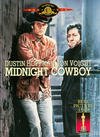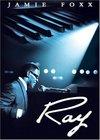
The Passenger: Directed by Michelangelo Antonioni, 1975
I was priveleged to experience a rare treat last night. My friend and I travelled over towards MIT to the Kendall Square cinema to catch a special screening of Michelangelo Antonioni's The Passenger. The print was in excellent condition and it's not every day you get to see classic films such as The Passenger up on the big screen.
The Passenger centers on the character of David Locke, played by Jack Nicholson. Locke is a reporter and the opening of the film finds him in an unnamed little country in Africa where he is trying to wrap up a new documentary that focuses on the guerilla movements in the area. After a failed attempt to meet some of the guerilla's Locke returns to his hotel to discover that a friend he had made on the plane, Robertson, is dead. In a bizarre turn of events, Locke sets things up in such a way to make it look like it was he who had died and not Robertson. Armed with Robertson's identity, and aided by the fact that everyone believes Locke is actually dead, Nicholson begins to follow in the footsteps of Robertson.
It is at this point the film spirals off into confusing twists and turns that accuratley convey the sense of unkown and subtle layer of confusion David Locke must feel himself. The rest of the film follows Locke and his journey as Robertson, while periodically intercutting this journey with both past and present glimpses of his former life. By the end of the film, things have neatly been woven together, in what is at times, a humorous and suspenseful nod to the political thrillers that were heavily popular during the 1970's.
What makes this film worthwhile is how Antonioni does an excellent job of making this film about the character of David Locke. Why does he choose to let people believe he is dead? Why is he running away from a successful career and also his marriage? After he discovers what Robertson's profession is, why does he choose to continue Robertson's work for him? It is these questions and more that arise throughout the course of the film, and ultimately I don't think there is any one answer. It should be mentioned here that Nicholson does an excellent job with the role, saying more with less, commanding the viewers attention without any visible effort.
The other aspect of this film that makes it worth seeing is the cinematography. The film is simply beautiful. One realizes quickly that the environments of the film are as much a character as the actual people that populate the screen. Antonioni moves from one brilliant piece of architecture to another, all the while interspersing this architectural marvels with brilliant shots of landscape. In particular there is an amzing scene in which Nicholson is asked what he is running from. In response he says "Turn your back to the front of the car." Maria Schneider obliges him, and the camera shows an endless line of trees, all marked with white squares, quickly fading away as the car speeds onward. It seems like a simple shot, but on the screen the composition becomes quite poetic.
Not nearly finished, Antonioni save his best for last. There is an extremely long take right at the end of the film in which the camera is situated within a room. The camera ever so slowly moves in to focus on an old man sitting outside, across the empty road. The window in which this is shot through is covered with bars, yet uninterrupted, the camera moves through the bars and then slowly pans to the left. It then pans back to the right, making a full 360 degree turn and the dolley's and tracks to the left, framing the interior of the room the camera had just left. This entire shot is probably about 5 minutes and there is not a single cut. If someone can explain to me how this shot was pulled off (specifically getting the camera through the bars in the window) I'd love to hear it.
Ultimately the film is entertaining and thought provoking. What makes it stand out is its defiance to be confined to a single genre. Is it a travel film, political thriller, simple drama. All of them apply at one point or another. Nicholson's performance is probably one of his best, so if not for anything else its worth checking out the film to see Nicholson still in the earlier stages of his career (a full 5 years before The Shining).
***three stars



